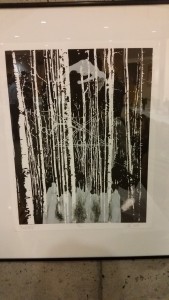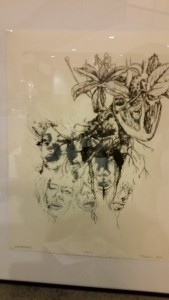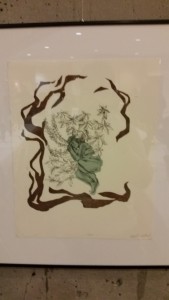The Poisonous Plants exhibit is an art exhibit that currently rests in The Flora Rose Dining Hall. It’s a newly added collection of pieces which are centered around the idea of various poisonous plants. These prints were created in the class Introduction to Print Media taught by Professor Page. The students of the class worked with Professor Todd Bittner, Director of Natural Areas of the Cornell Plantations, and Diane Miske, Gardener and Visitor Services Coordinator at the Cornell Plantations. Professor Page likes to take the learning in his class, and really apply it to a different medium or outlet, hence all the prints being centered around these plants.
The plants are definitely the highlight of every piece but they draw on so much more than just that. Some showcase human emotions through the plants while others try to mix human perceptions and feelings with the anatomy of the plants. Overall it brings upon quite a stunning intertwine between the mediums and leaves the viewer to think and observe more than what’s presented at the surface. Some of the pictures attached are pieces of work from the gallery. I highly recommend for that people visit Flora Rose Dining to get a view of these pieces of art.



